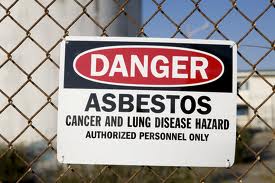- January 21, 2013
- 0

Gastrointestinal Cancer and Asbestos Exposure
The relationship between asbestos exposure and gastrointestinal cancer has historically been vague. Some studies demonstrate weak links while more recent reports show a causal relationship between the toxic mineral asbestos and this common cancer.
Gastrointestinal cancer is the accepted term for a group of cancers that are contained within the digestive system or intestinal tract. This includes pancreatic cancer, liver, gallbladder, colon, rectal and stomach cancer, in addition to gastrointestinal stromal tumors (GIST). Collectively, these cancers account for more than 250,000 new cases each year and over 100,000 deaths each year.
As known risk factors for gastrointestinal cancer currently include smoking, alcohol consumption and obesity, asbestos exposure may eventually warrant the same classification. Exploring this relationship may provide researchers a better opportunity to find more effective treatment options.
Fast Fact: When grouped together, gastrointestinal cancers are the second most common cancer in the United States.
Connection between Asbestos and Gastrointestinal Cancer
Asbestos exposure has definitively been linked to mesothelioma, lung cancer and asbestosis . Could gastrointestinal cancers eventually be considered among them? The simple answer: possibly. In a study published in 2005, a clear association was demonstrated. A group of 726 lighthouse keepers in Norway were studied for cancer risk between 1917 and 1967 and were assessed again between 1960 and 2002.
Among a subgroup of lighthouse keepers — a segment who ingested asbestos-tainted drinking water — the risk of some gastrointestinal cancers, specifically stomach cancer, was statistically elevated. The risk of developing a gastrointestinal cancer among this group was increased by as much as 450 percent. Results from this study aligned with findings from similar reports.
In a report published in 1985, in which researchers analyzed more than 45 studies of mortality data among asbestos-exposed workers, commonalities were found which included gastrointestinal cancers. Results from these studies showed a statistically significant elevation of esophageal, stomach and gastrointestinal tract cancers in workers who were exposed to asbestos.
However, it should be noted that some researchers remain critical of the proposed association between asbestos exposure and gastrointestinal cancers. They state that multiple studies that support the association come from one group of investigators, suggesting that more independent research is necessary.
Critics further argue that previous republishing of a handful of reports may create the illusion of stronger associations between asbestos and gastrointestinal cancer than what really exists. Despite a lack of consensus on the data, researchers from both sides agree that cancer patients need to take immediate action upon diagnosis.
According to the National Cancer Institute, some cases of gastrointestinal cancers present no symptoms in early stages. This characteristic, similar to asbestos-connected diseases like mesothelioma and asbestosis, can delay a patient from visiting the doctor, effectively decreasing the likelihood of an early diagnosis.
For many cancers, including mesothelioma, late- stage diagnoses yield limited treatment options, negatively affecting the patient’s prognosis. Gastrointestinal cancer treatments differ based on the location of the cancer, the size of the tumor and the condition of the patient, along with varying other factors.
- January 21, 2013
- asbestos




